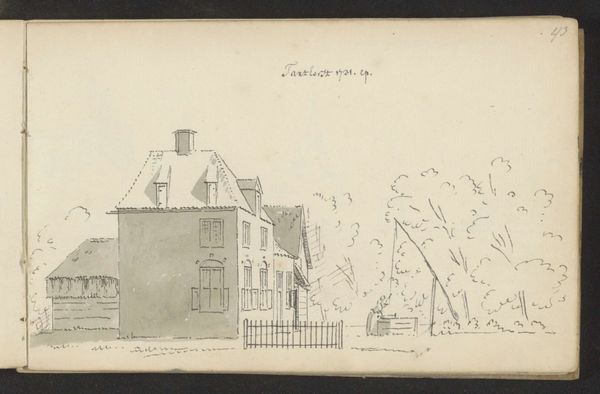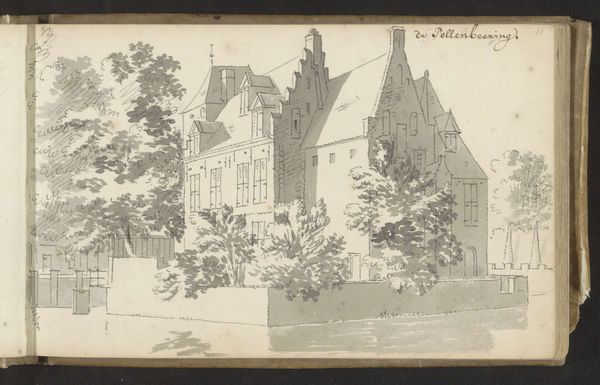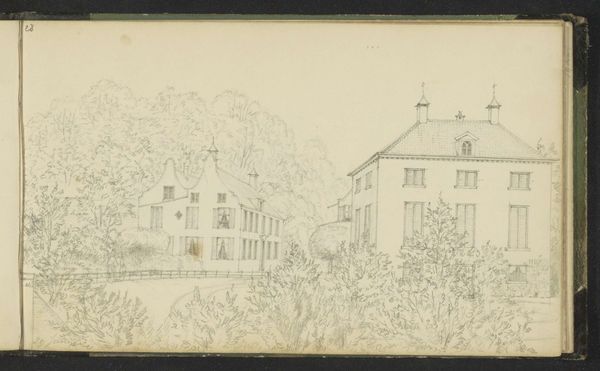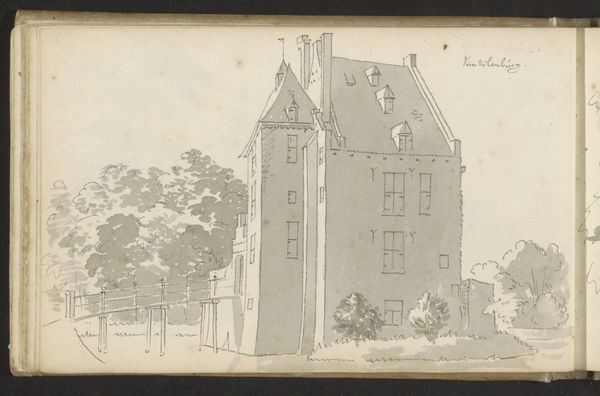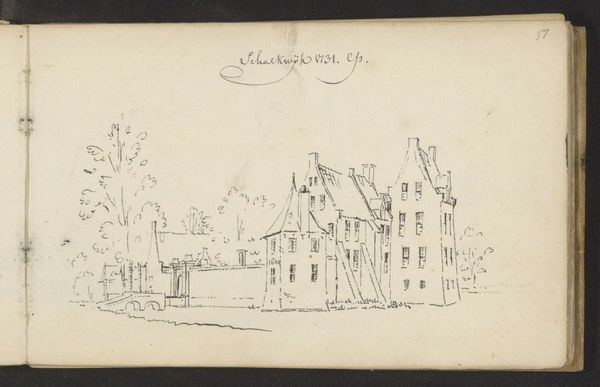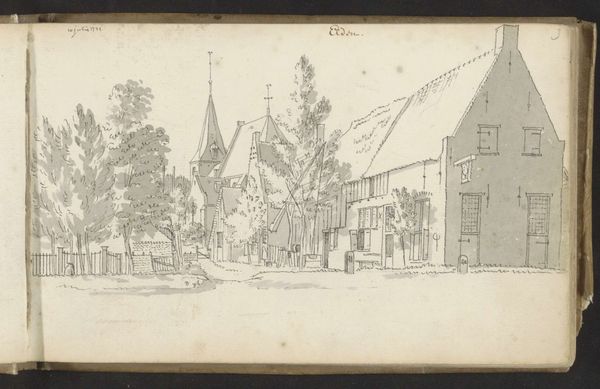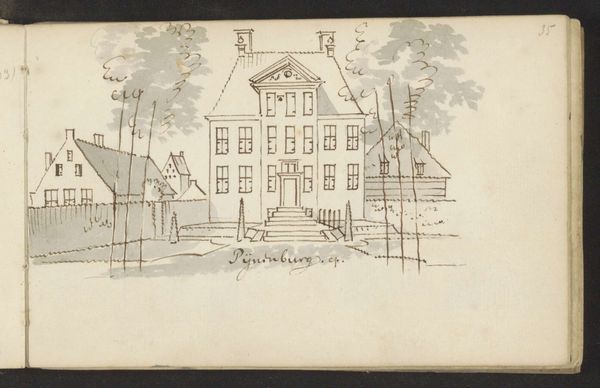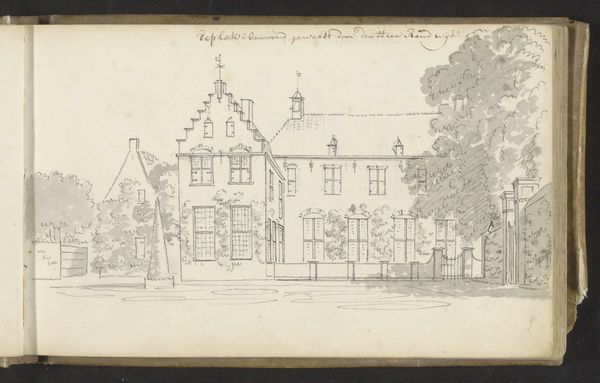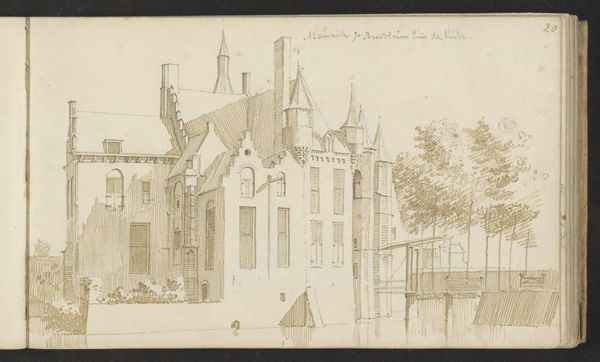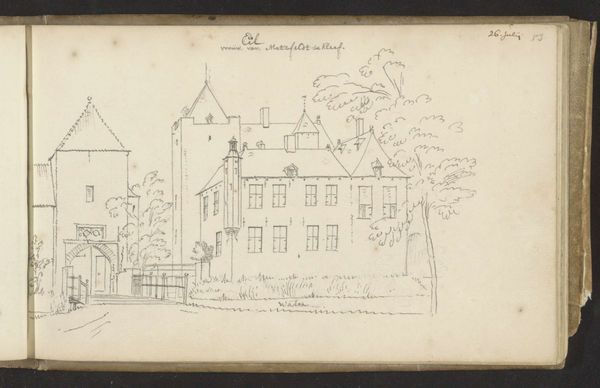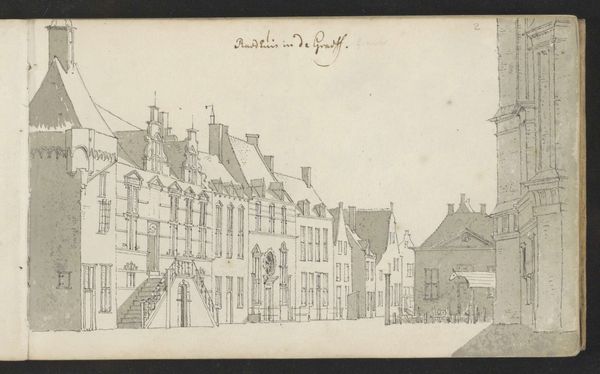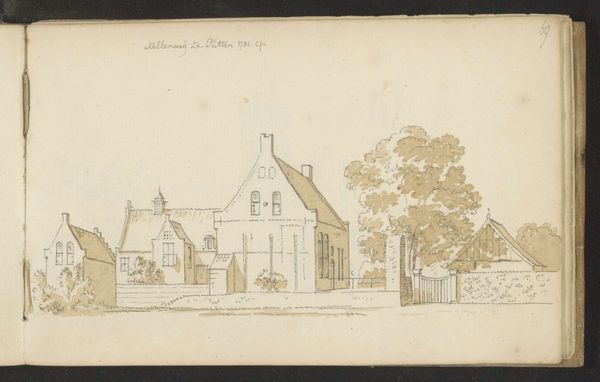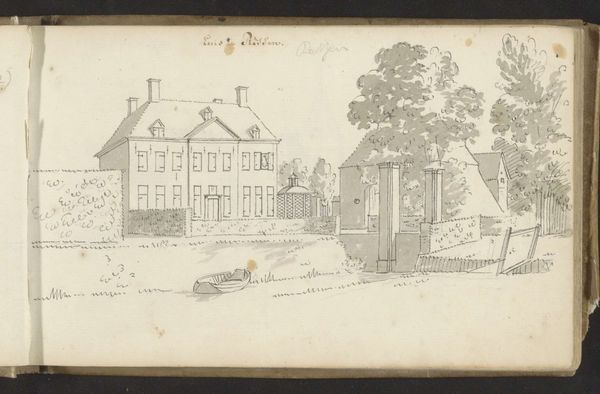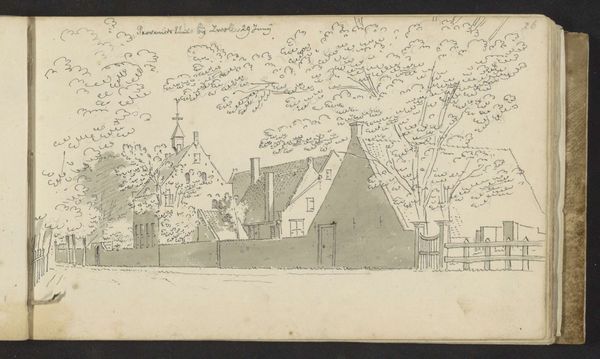
drawing, plein-air, watercolor
#
drawing
#
aged paper
#
toned paper
#
quirky sketch
#
dutch-golden-age
#
plein-air
#
sketch book
#
landscape
#
form
#
personal sketchbook
#
watercolor
#
line
#
sketchbook drawing
#
cityscape
#
watercolour illustration
#
storyboard and sketchbook work
#
sketchbook art
#
watercolor
#
realism
Copyright: Rijks Museum: Open Domain
This is a drawing of Kasteel Hardenbroek te Driebergen-Rijsenburg, created by Abraham de Haen the Younger in 1731. The castle is captured with ink and watercolor on paper. The pale washes and delicate lines give the scene a serene, almost ethereal quality. De Haen’s composition juxtaposes the organic forms of the surrounding trees with the rigid geometry of the castle. Notice how the horizontal lines of the bridge and the building’s facade are balanced against the verticality of the trees and the castle’s structure. This interplay creates a sense of depth and perspective. The architectural structure of the castle can be seen to act as a signifier of order, rationality, and control, set against the fluidity and unpredictability of nature. This tension reflects broader philosophical concerns of the Enlightenment, where reason and nature were often contrasted. De Haen’s strategic use of line and wash blurs these oppositions, prompting us to consider how such boundaries are not fixed, but fluid and open to interpretation.
Comments
No comments
Be the first to comment and join the conversation on the ultimate creative platform.
